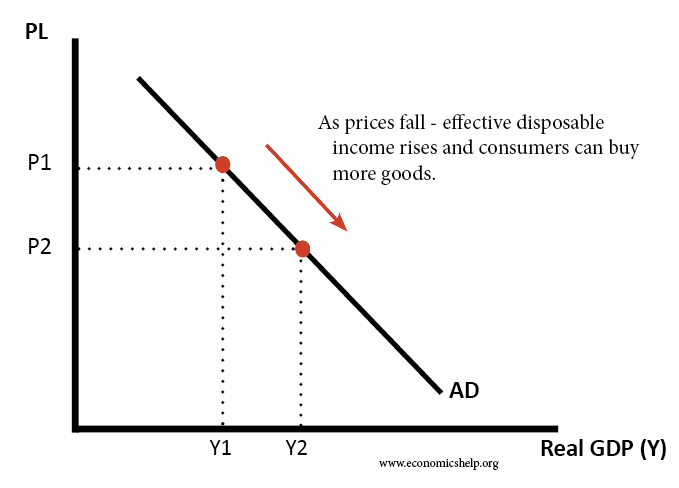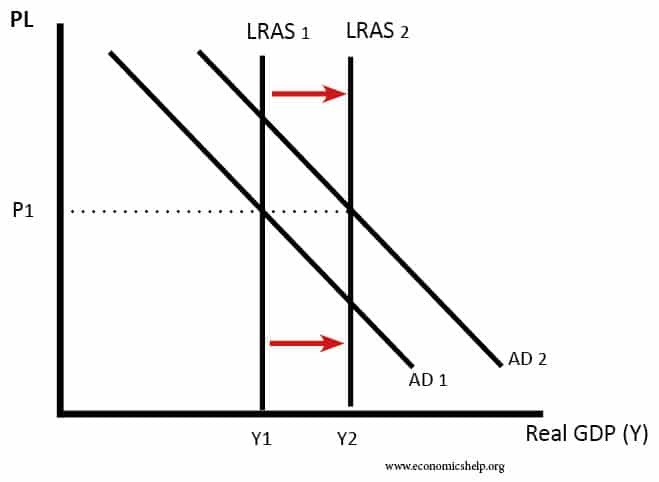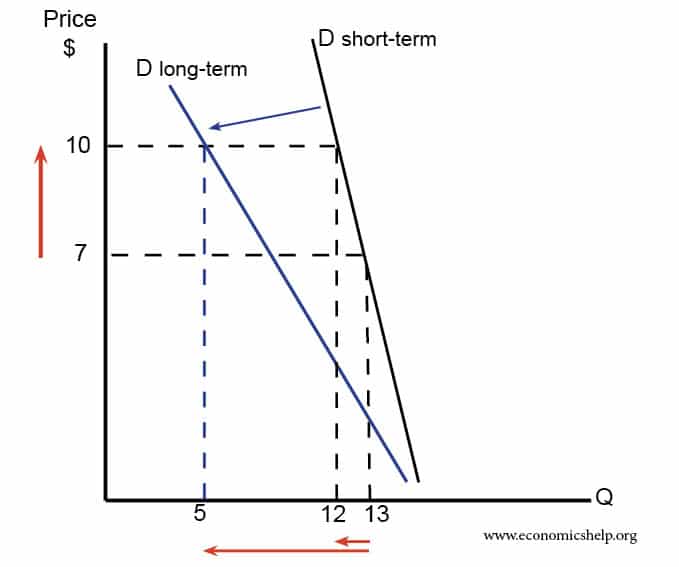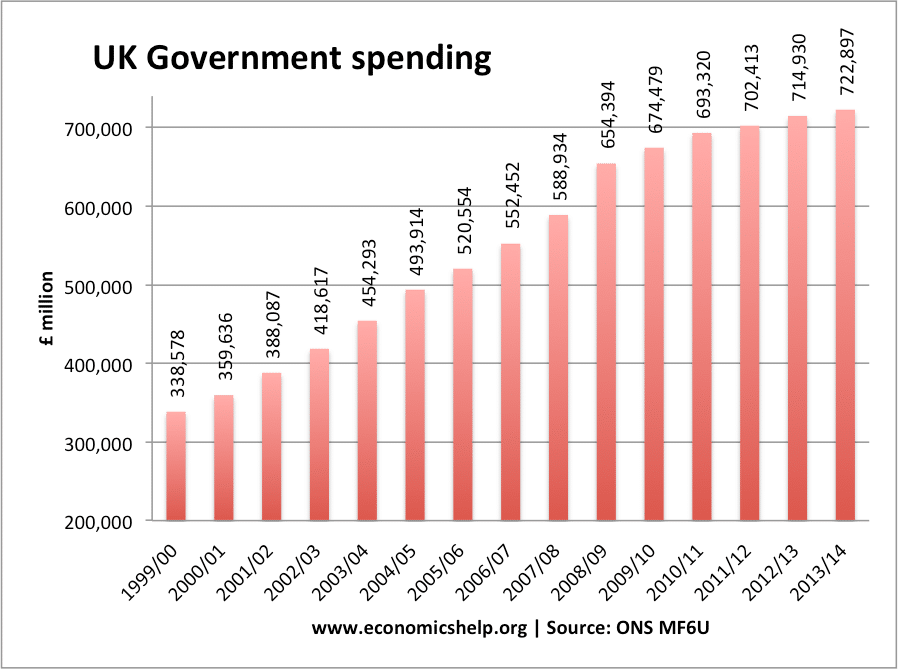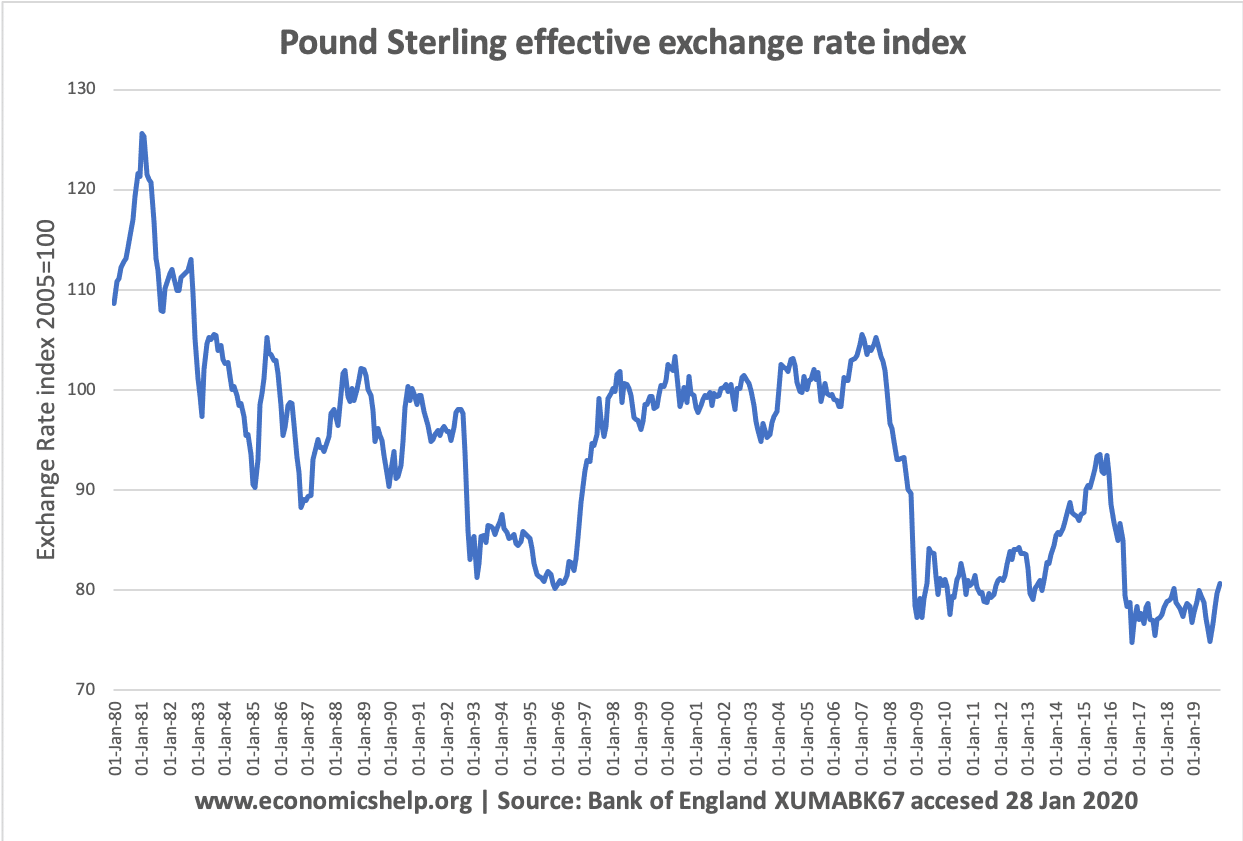Why is the aggregate demand (AD) curve downward sloping?
The aggregate demand curve (AD) is the total demand in the economy for goods at different price levels. AD = C + I + G + X – M If there is a fall in the price level, there is a movement along the AD curve because with goods cheaper – effectively, consumers have more …

